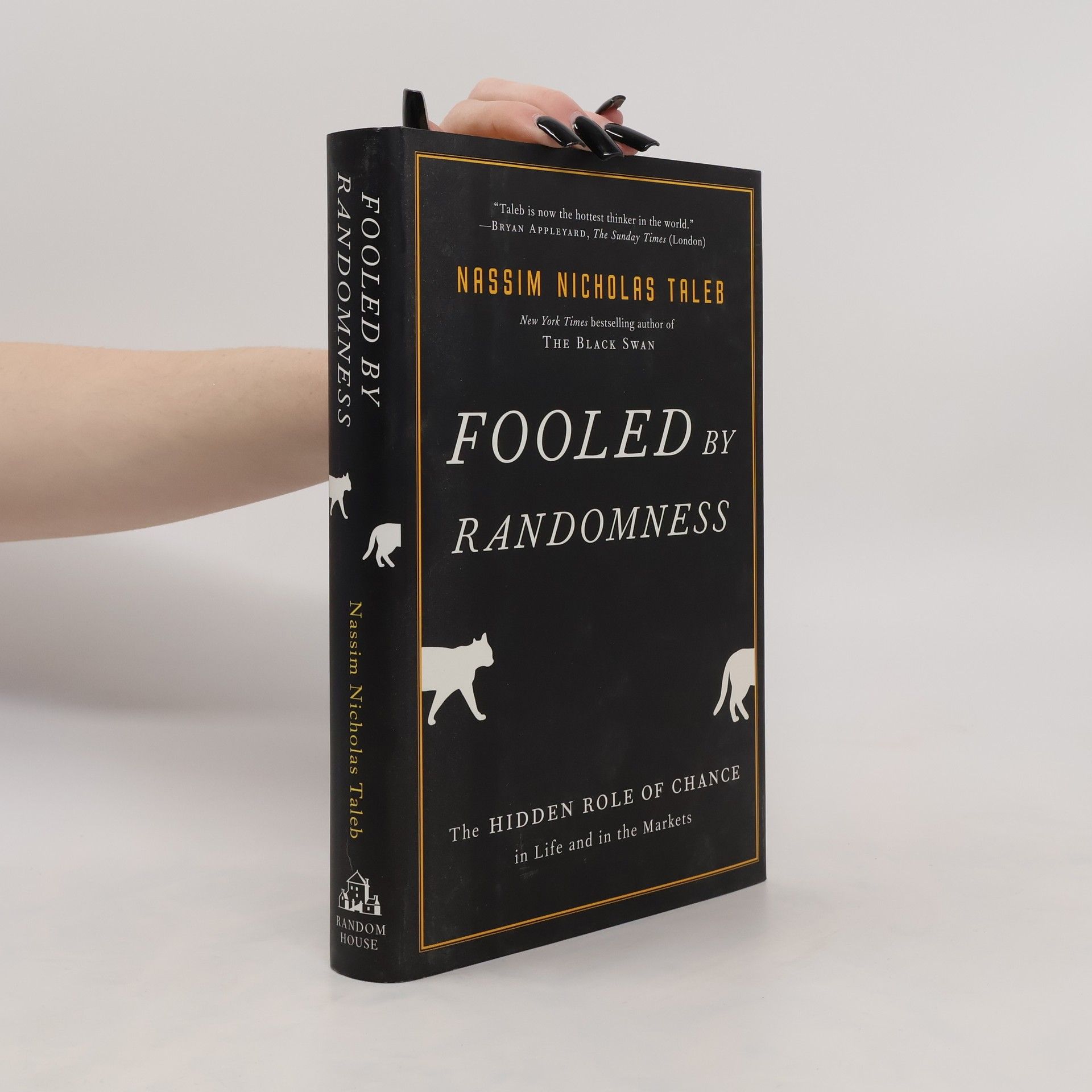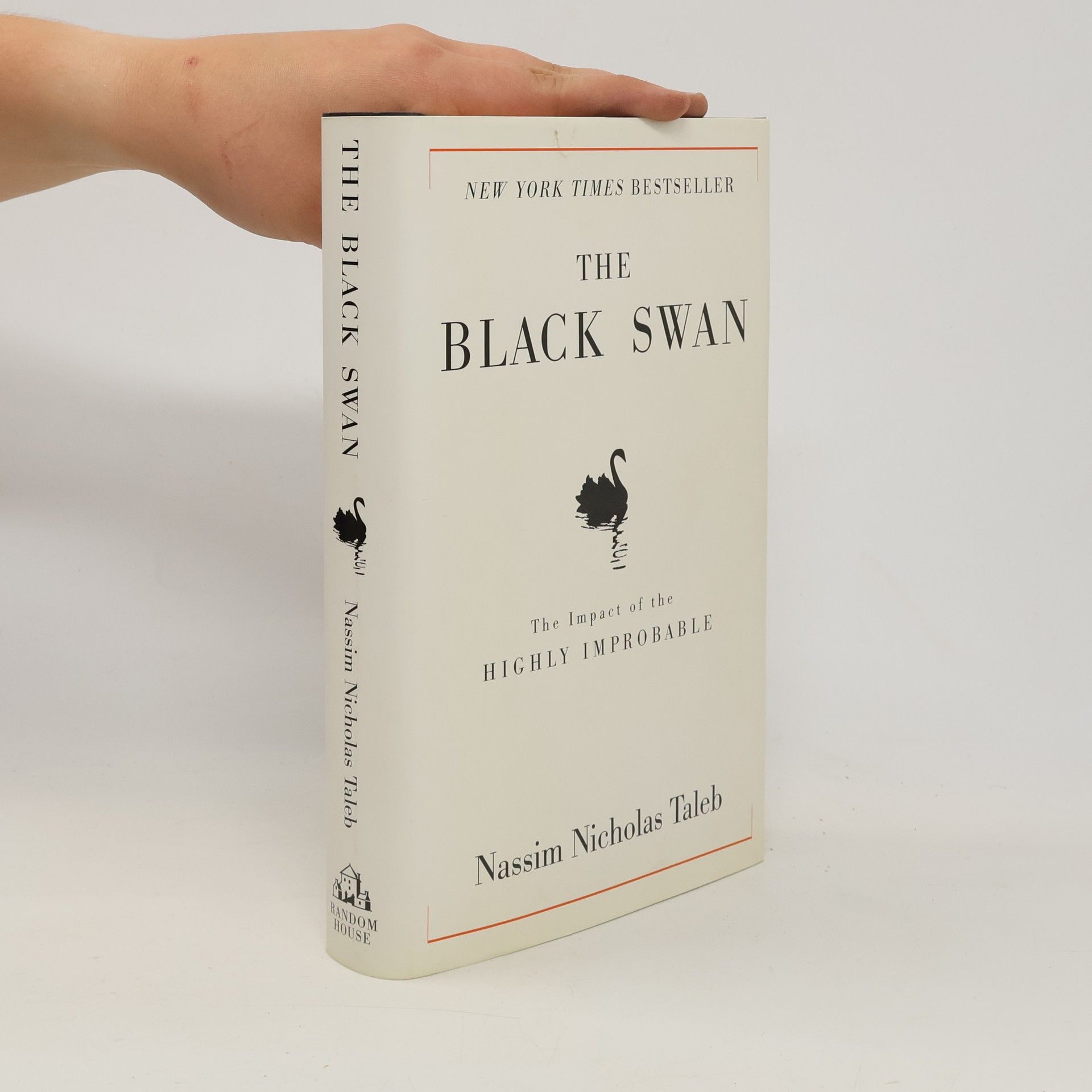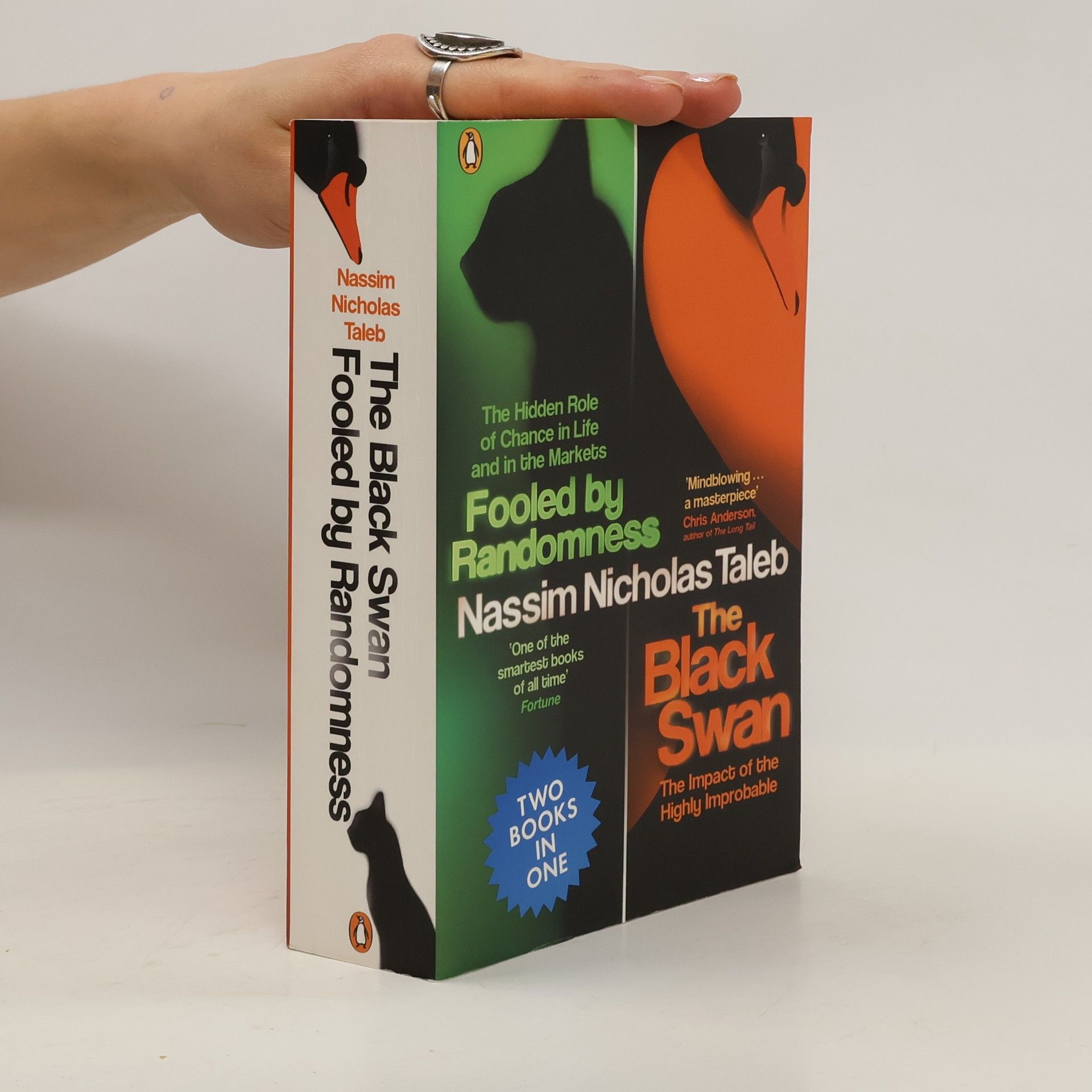O książce: Pierwsza książka Nassima Nicholasa Taleba, autora słynnego 'Czarnego Łabędzia' i 'Antykruchości'. W błyskotliwym eseju autor zastanawia się nad rolą przypadku na rynkach finansowych, i szerzej – w życiu człowieka. Na podstawie swego wieloletniego doświadczenia zawodowego praktyka-ilościowca, a także w oparciu o setki przeczytanych książek, Taleb snuje frapującą opowieść o tym, jak funkcjonować w świecie, w którym kluczową rolę odgrywa losowość i dlaczego ludzie tak usilnie starają się usystematyzować przypadek. W swych rozważaniach przechodzi od matematycznej metody Monte Carlo (wykorzystywanej do modelowania matematycznego złożonych procesów, w których trudno za pomocą podejścia analitycznego przewidzieć wynik) do koncepcji rosyjskiej ruletki… O autorze: NASSIM NICHOLAS TALEB (ur. 1960) jest amerykańskim inwestorem, teoretykiem rynku, filozofem i eseistą. Specjalizuje się w zagadnieniach niepewności, nieprzewidywalności i ryzyka. Przez wiele lat pracował jako trader, by w 2006 roku, na dwa lata przed kryzysem finansowym, odejść z rynku kapitałowego. Wykłada inżynierię ryzyka w Polytechnic Institute Uniwersytetu Nowojorskiego, poświęca się swoim badaniom i pisaniu, a w wolnym czasie medytuje w kawiarniach całego świata, niczym opisywany przez siebie włóczęga (flâneur). Oprócz Czarnego Łabędzia (ang. The Black Swan), który przyniósł mu międzynarodową sławę, napisał m.in. Ślepy traf (wyd. pol. 2006, tytuł ang. Fooled by randomness) oraz Antykruchość (wyd. pol. 2013, tytuł ang. Antifragile). Urodził się w Libanie. Jest magistrem nauk przyrodniczych i doktorem zarządzania (oba dyplomy odebrał na Uniwersytecie w Paryżu), ma tytuł MBA Szkoły Biznesu Whartona Uniwersytetu w Pensylwanii. Mieszka w Nowym Jorku.
Incerto Serie
Questa serie esplora il ruolo profondo della casualità, dell'incertezza e dell'imprevedibilità negli affari umani e nei mercati finanziari. L'autore fonde magistralmente aneddoti personali con profonde intuizioni filosofiche e concetti matematici. I lettori scopriranno come navigare in un mondo dominato dal caso e comprenderanno il nostro desiderio innato di imporre ordine al caos. Offre un'esplorazione stimolante sul rischio, lo scetticismo e la vera natura della realtà.

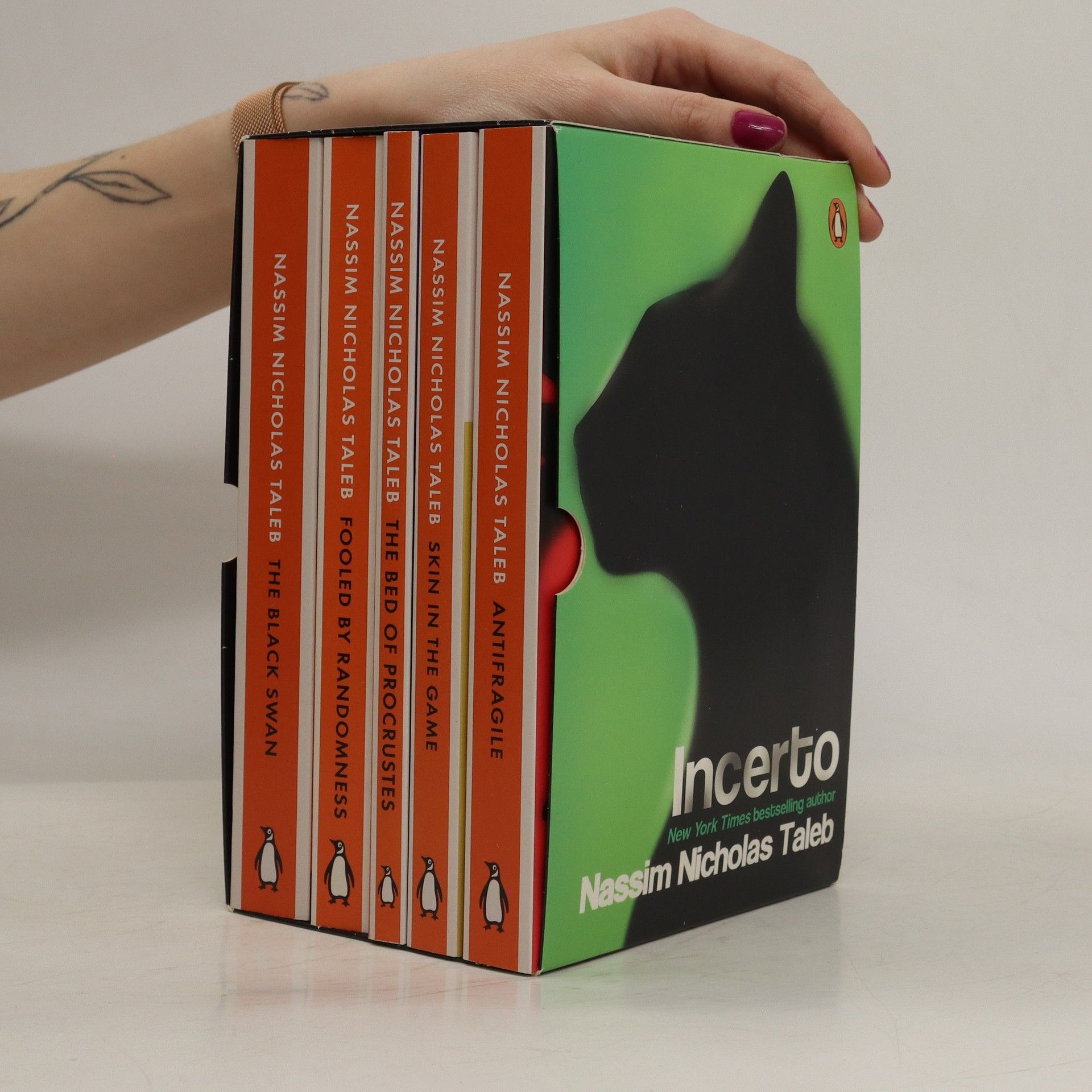

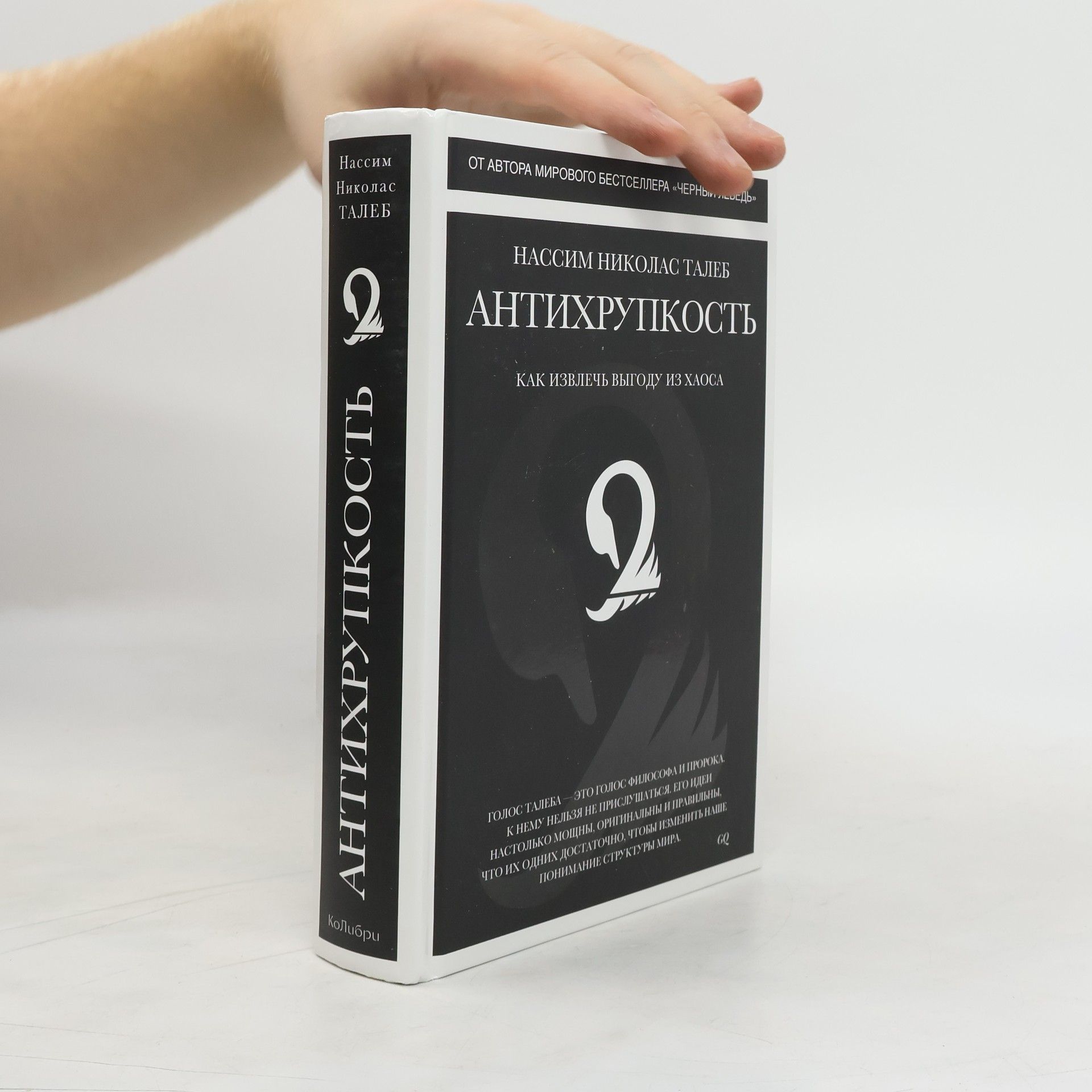
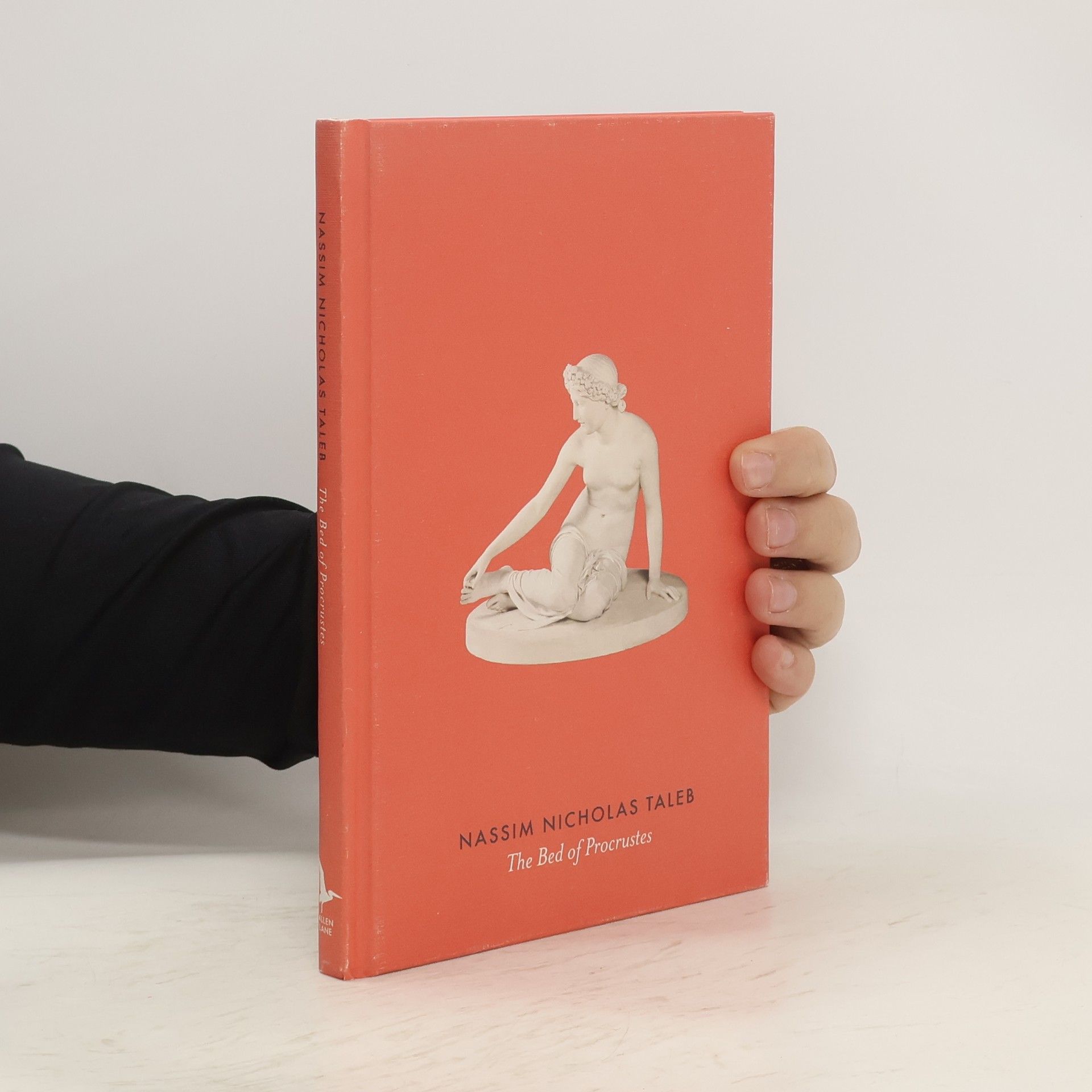

Ordine di lettura consigliato
- 1
- 1
Fooled by randomness : the hidden role of chance in life and in the markets
- 368pagine
- 13 ore di lettura
Contends that randomness and probability have a large impact on life, claims that people regularly fail to recognize that role, and tells how to differentiate between randomness in general and the financial markets in particular.
- 2
Чорний лебідь
Про (не)ймовірне у реальному житті
- 2
The Black Swan
The Impact of the Highly Improbable
ABOUT THIS BOOK A black swan is a highly improbable event with three principal characteristics: It is unpredictable; it carries a massive impact; and, after the fact, we concoct an explanation that makes it appear less random, and more predictable, than it was. The astonishing success of Google was a black swan; so was 9/11. For Nassim Nicholas Taleb, black swans underlie almost everything about our world, from the rise of religions to events in our own personal lives.
- 3
The Bed of Procrustes
- 112pagine
- 4 ore di lettura
By the author of the modern classic The Black Swan, this collection of aphorisms and meditations expresses Taleb's view of modern civilization's hubristic side effects--modifying humans to satisfy technology, blaming reality for not fitting economic models, inventing diseases to sell drugs, defining intelligence as what can be tested in a classroom, and convincing people that employment is not slavery
- 4
Antifragile
- 546pagine
- 20 ore di lettura
In his revelatory new work, Taleb presents a definitive solution for navigating a world that is unpredictable, chaotic, and filled with shocks, focusing on how to thrive during disasters. He turns the concept of uncertainty on its head, making it not only desirable but essential, and advocates for building systems in an antifragile manner. The 'antifragile' thrives on shocks, uncertainty, and stressors, enabling the most successful individuals to leverage disorder for innovative opportunities and advantages. Taleb asserts that antifragility is the key to success amid uncertainty, transforming random challenges into lasting benefits. His writing is both entertaining and insightful, prompting readers to reflect on the nature of resilience. Critics note that his humor and sharp insights make the book engaging, while its rich content invites multiple readings. The notion of a new kind of strength emerges—one that is not about invincibility but rather an enhanced ability to manage life's inevitable surprises, allowing for significant rewards while minimizing risks. Taleb, as an outsider challenging established norms, offers a fresh perspective on navigating complexity and uncertainty.
- 4
Антихрупкость — книга уникальная: она рассказывает о ключевом свойстве людей, систем, о свойстве, у которого до сих пор не было названия. В мире, где царит неопределенность, нельзя желать большего, чем быть антихрупким, то есть уметь при столкновении с хаосом жизни не просто оставаться невредимым, но и становиться лучше прежнего, эволюционировать, развиваться. Талеб формулирует простые правила, которые позволяют нам преодолеть хрупкость и действовать так, чтобы непредсказуемая неопределенность, этот грозный и внезапный Черный лебедь, не причинил нам вреда - и более того, чтобы эта редкая и сильная птица помогла нам совершенствоваться.
- 5
Skin in the game : hidden asymmetries in daily life
- 272pagine
- 10 ore di lettura
Why should we never listen to people who explain rather than do? Why do companies go bust? How is it that we have more slaves today than in Roman times? Why does imposing democracy on other countries never work? The answer- too many people running the world don't have skin in the game. In this provocative book, Nassim Nicholas Taleb shows that skin in the game applies to all aspects of our lives. It's about having something to lose and taking a risk. Citizens, lab experimenters, artisans, political activists and hedge fund traders all have skin in the game. Policy wonks, corporate executives, theoreticians, bankers and most journalists don't.
New York Times bestselling author Nassim Taleb's landmark Incerto series - Antifragile, The Black Swan, Fooled by Randomness, The Bed of Procrustes - gathered together for the first time, in a beautifully designed box set.
Incerto 1-5 Box Set
- 5volumi
Nassim Taleb's five landmark bestselling books have changed the way millions see the world and think about uncertainty, chance, volatility, and risk. They can be read individually but are also written to complement each other and actually comprise a single work: The Incerto. This boxed set is newly designed and offers readers one of the most significant intellectual projects of our time.
The hidden role of of chance in life and in the markets.The impact of the highly improbable
Die "Incerto-Reihe" von Nassim Nicholas Taleb, die die Werke "Der Schwarze Schwan", "Narren des Zufalls", "Antifragilität" und das "Kleine Handbuch für den Umgang mit Unwissen" umfasst, untersucht die Rolle von Glück, Unsicherheit und Risiko in einer komplexen Welt. Daniel Kahneman beschreibt Talebs Einfluss auf seine Weltsicht.
